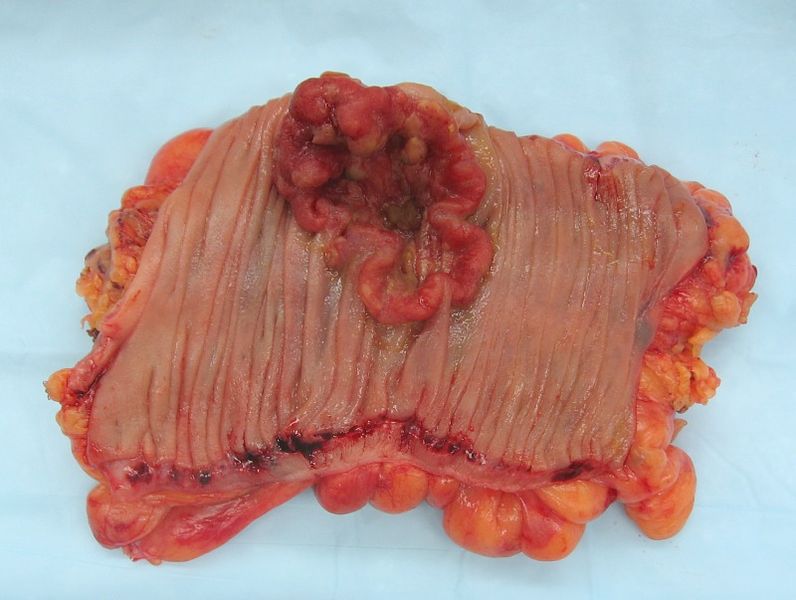Cancerous colon cells have a distinctive genetic signature, which could be used to develop personalised treatments, or identify those at risk of developing the disease.
Writing in the journal Science, Case Western Reserve University researcher Peter Scacheri explains how colon cancer cells, from different people at different stages of the disease, all showed certain epigenetic changes - alterations in the proteins that bind to and control expression of DNA. They coined the term Variant Enhancer Loci or "VELs" to describe them.
These VELs are interesting because the actual genes involved in colon cancer vary enormously between patients, and because epigenetic changes such as these should be reversible, providing valuable targets for treatments.
 Looking at colon cells known as crypt cells, the researchers took samples of from healthy volunteers, as well as from early & late stage tumours, and labelled the genetic material with a marker that indicates the presence of gene enhancer elements. This allowed them to identify thousands of VELs in cancerous cells that are either lost or gained when compared with healthy cells. They also looked into gene expression to determine if these markers truly represented a change in the function of the cell, and found that the majority of common VELs did translate into up- or down-regulation of gene expression, with lost VELs having a more significant impact on cell function than those gained.
Looking at colon cells known as crypt cells, the researchers took samples of from healthy volunteers, as well as from early & late stage tumours, and labelled the genetic material with a marker that indicates the presence of gene enhancer elements. This allowed them to identify thousands of VELs in cancerous cells that are either lost or gained when compared with healthy cells. They also looked into gene expression to determine if these markers truly represented a change in the function of the cell, and found that the majority of common VELs did translate into up- or down-regulation of gene expression, with lost VELs having a more significant impact on cell function than those gained.
Epigenetic changes have a profound effect on the process of cells becoming cancerous. In all, they found that the number of gene enhancers that change in the disease was significantly higher than the number of mutated genes, and importantly, less variable from one tumour to the next.
Colon cancer is linked with diet and obesity, and is one of the most common forms of cancer. As with all cancers, identifying markers of the disease improves the likelihood of successful treatment. Understanding the changes that happen not only to genes, but to gene switches and regulators, is a major step in improving treatments.









Comments
Add a comment